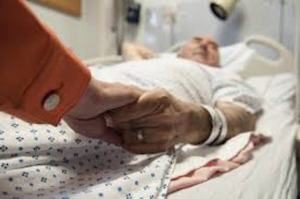Our Principles
Our Institute is a nonprofit, Judeo-Christian organization that addresses bioethical issues including euthanasia, physician-assisted suicide, the withholding or withdrawing of food and water from non-dying patients, brain death, organ transplantation, genetic engineering, and the rights of disabled or mentally ill persons.
Underlying all our moral positions is the respect for all human life from conception to natural death. Life is a gift from God, over which we have stewardship but not absolute control.
All people are created equal. All people deserve to be respected. Because a person may be physically or mentally challenged does not make them less of a person. We need to do all that we can to protect the rights of people who are more vulnerable to the pressures of physician-assisted suicide and euthanasia.
Brain Death
“Brain death” is a new concept of death formulated by an ad hoc committee of the Harvard Medical School in 1968 by defining irreversible coma as “brain death.” True death is a single event that leads to certain biological signs that can be observed. As of now there are no “brain death” tests that can determine when an individual organism has lost its “integrative capacity,” or is truly dead. Scholl opposes any diagnosis of “brain death” that assumes true death has occurred without the natural cessation of respiration and heartbeat.
 Euthanasia
Euthanasia
Euthanasia is never permissible since it involves the deliberate killing a human being. It is a false or misguided compassion to think we know better than God when life should end. We are stewards, not masters, of the life God has given us.
Genetic Engineering
Genetic engineering has led to useful discoveries including the development of antibiotics, hormones, and other drugs. Scholl cautions, however, that any development that involves the manipulation of human reproductive cells or embryos is not acceptable.
There is a need for caution with the advent of the technologies that allow manipulation of the human genetic code. With the use of CRISPR an embryo (that is developed by using In Vitro Fertilization [IVF]) can have its DNA manipulated before implantation. This causes many concerns. The technology has great risks to the embryo who cannot give consent and will forever have artificially altered genes that will be passed on to future generations. In Vitro Fertilization is also unacceptably risky to the donor.
Though preventing disabilities is a lofty goal, using genetic engineering presents the added question of who will be able to use the technology. Will there be more discrimination against the person with a disability? If we can manipulate genes to prevent disabilities, it seems obvious that there will be immense pressure to modify, design, and manufacture humans according to our preferences. This is eugenics.
Organ Transplantation
The distinction between organ transplantation and tissue transplantation is vital. Tissue removal and transplantation is generally possible without ethical issues arising. Organ transplantation is fraught with ethical issues including but not limited to the determination of actual donor death, the usefulness of organs after true death, and the rights of living donors to allow the removal of organs, if they are redundant, i.e., kidneys. Any process which commercializes human organs, or considers them as objects of exchange must be rejected, as is any effort to coerce a donation
Physician-Assisted Suicide (PAS)
Like euthanasia, PAS is the deliberate killing of another human being and is never permissible.
Medical Treatment Decisions
Since life is a gift from God the first duty of any medical person is to respect the dignity of each human being and to do no harm.
- For a Dying Person: If death is imminent and the dying process is irreversible, there is no obligation to provide or continue treatment that offers no hope of recovery. Death should be the result of illness or injury and should not be caused by dehydration or starvation when food and water can be provided by mouth, intravenously, or by tube feedings. If death is imminent and the dying process is irreversible, the dying person should have comfort care and effective pain management. Even when death is imminent, physician-assisted suicide or euthanasia is not permissible.
- When Death Is Uncertain: If it is uncertain whether or not a person is dying, normal medical treatment should be provided to give the person the chance for survival.
- For a Person Who Is Not Dying: If a person is not dying but has a chronic disabling condition (including brain injury), that person should receive food and water by mouth or tube, ordinary medical treatment, comfort care and effective pain management.
- Withholding and Withdrawing of Food and Water: The same “Medical Treatment Decisions” provide us with guidelines about the complicated issue of withholding or withdrawing food and water. For a non-dying patient it is never permissible to withhold or withdraw food and water. For a person that is obviously dying and not able to absorb any food or water, it can be permissible to withhold if the burden is greater than the benefit. One must be very careful to make sure that it is the burden of the food and/or water that necessitates its withdrawal and not the burden of caring for a dying person or the difficulty of the underlying disease that is the burden.
